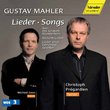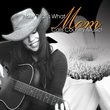| All Artists: Wolfgang Rihm, Hans Zender, Michael Gielen, SWR Baden-Baden und Freiburg Title: Wolfgang Rihm: Musik fr Oboe und Orchester / Styx und Lethe / Dritte Musik / Erster Doppelgesang Members Wishing: 0 Total Copies: 0 Label: Hanssler Classics Release Date: 4/10/2007 Album Type: Import Genre: Classical Styles: Chamber Music, Forms & Genres, Concertos, Historical Periods, Classical (c.1770-1830), Modern, 20th, & 21st Century, Instruments, Reeds & Winds, Strings Number of Discs: 1 SwapaCD Credits: 1 UPC: 4010276018698 |
Search - Wolfgang Rihm, Hans Zender, Michael Gielen :: Wolfgang Rihm: Musik fr Oboe und Orchester / Styx und Lethe / Dritte Musik / Erster Doppelgesang
 | Wolfgang Rihm, Hans Zender, Michael Gielen Wolfgang Rihm: Musik fr Oboe und Orchester / Styx und Lethe / Dritte Musik / Erster Doppelgesang Genre: Classical
|
Larger Image |
CD DetailsSimilar CDs |
CD ReviewsFour concertos, the best Rihm yet on disc! R. Hutchinson | a world ruled by fossil fuels and fossil minds | 06/23/2007 (5 out of 5 stars) "This Hannsler disc bears the title RIHM-EDITION, VOL. 1. This is great news for admirers of Rihm's music, and the Edition is off to an amazing start with this collection of four concertos from the SWR Sinfonieorchester Baden-Baden und Frieburg, with conductors Michael Gielen and Hans Zender. I recommend this disc without reservation to anyone who is curious about the prolific contemporary German composer -- it instantly becomes the best introduction to Rihm. Concertos, it seems to me, often provide an accessible doorway to a composer's work. The foregrounding of a solo line over an orchestral counterpart can be easier to follow than the complex structures of, say, symphonies or string quartets. This set of Rihm concertos is a fantastic example of the principle, in any event. All four are either world premieres, or world premiere recordings, or both. The first, "Musik fur Oboe und Orchester" (16'19" -- 1995/2002) is the least intimidating of the four. Alexander Ott plays the lovely solo part, which is melodic in the best romantic tradition. Some will not doubt see this as Rihm mellowing and making a neoclassical turn, but it is a beautiful piece in its own right. It works toward an energetic and humorous climax. "Styx und Lethe: Musik fur Violoncello und Orchester" (23'34" -- 1997/1998) is the most impressive of the four concertos, and features Lucas Fels on cello. It is a very dense work, but utterly fascinating in its complexity. Rihm describes it as being like "over-packed suitcases." Like the oboe concerto, the cello concerto concludes with frantic energy. Together, they stand as two chapters of a story, beginning light and carefree, and turning dark and tormented. Hans Zender leads the SWR Symphony Orchestra in live performances of both pieces. "Dritte Musik fur Violine und Orchester" (17'42 -- 1993) features Gottfried Schneider on violin and Michael Gielen as conductor. Finally, "Erster Doppelgesang: Musik fur Viola, Violoncello und Orchester" (14'04" -- 1980) is the earliest work included, and the only one recorded in the studio. Jan Latham-Koenig conducts, Hirofumi Fukai plays viola, and Walter Grimmer plays cello. These string concertos maintain the high level of music. The "Doppelsegang" is a striking work with several strong tonal passages that emerge as out of storm clouds, and it concludes with percussion beating down the strings al Schnittke. Rihm, who wrote it in Rome, says "[i]n April the war cries were ringing out louder and louder. Why should it not be said? The drum, small and malicious has to do with it. The singing is over." Apparently referring to the intensifying Cold War confrontation of the time, this is the most political comment I have run across from Rihm. Hanssler retroactively identifies KLANGBESCHREIBUNG (2001) and TUTUGURI (2003) as part of the Rihm- Edition. VOLUME TWO has since been released, with three 1970s orchestral works -- see my review, and now VOLUME THREE, with a mix of orchestral and choral works. I look forward to future releases in Hanssler's Rihm-Edition without reservation! " Four concertos of concentrated expression and virtuoso deman Christopher Culver | 07/29/2008 (5 out of 5 stars) "With a career of over 35 years and some 400 compositions, Wolfgang Rihm is one of Germany's eminent composers. He first rose to prominence in the early 1970s when he chose neither serialist complexity nor minimalist crawling, writing instead almost bar by bar in a furious expressionist style. His Darmstadt credo, "Music must be full of emotion and the emotions full of complexity" inspires him to this day. Hanssler Classic is to be commended on having launched the Rihm Edition, which will make many of Rihm's greatest compositions available on disc over the next several years. This first volume contains four concertante works performed by the SWR Sinfonieorchester Baden-Baden und Freiburg with a changing cast of conductors and soloists.
The most striking part of "Music fur Oboe und Orchester" (1995/2002) is something that came only with the recent edition, a nearly three-minute oboe solo (Rihm is very fond of going back and writing new lines over existing works). The orchestra then enters, and the mood drastically changes. The scoring is very light, with the oboe maintaining long lines with a succession of individual orchestral instruments playing pointillistically. I've never heard a concerto quite like this. The soloist and orchestra might initially be seen as anatagonists as is common with 20th century concertos, though instead of a confrontation they seem to uneasily go along aside one another. But then we get an uproariously bouncy ending, with the oboe joining the orchestra in a dance. "Styx und Lethe" for cello and orchestra (1997/98) reminds me a lot of Berio's "Chemins II" for viola and chamber orchestra in for most of the work the soloist furiously saws away at a succession of basic lines while the ensemble is like a halo of development around him. The scoring is intriguing, with the opening section bass-heavy before higher pitches enter in a cathartic movement. I especially love how the music builds up into a grand ostinato involving seemingly every member of the orchestra. For the most part, "Dritte Musik" for violin and orchestra (1993) has the violinist dueling with percussion, mainly on congas, bongos and marimba. The orchestra throws in little blasts on brass from time to time or keeps up some smooth lines on low strings, but generally stays out of the fight. Some of the rhythms here are catchy, resembling the pre-Columbian beats of his opera THE CONQUEST OF MEXICO. "Erster Doppelgesang" for viola, cello and orchestra (1980) is the oldest work here. Probably the major stylistic matter one notices in this piece that is missing from Rihm's later work are allusions to the Romantic tradition like flotsam and jetsam on the neo-expressionist tide. Out of the concertos on this disc, I find this piece features the coolest-sounding extended techniques on its two solo instruments. The work ends with solo snare drum rolls, giving a rather creepy martial feeling. I look now at what I've written and see that, except for making comparisons to other works, I managed to tell very little of what the music really sounds like. Indeed, Rihm himself is known as a critic of programme notes, with the booklet for this CD even including some of his correspondence on the matter with a festival director. Nonetheless, if you are interested in contemporary repertoire that directs strong modernist gestures towards constant activity and a rich language, just take my word for it that Rihm's work is always worth looking into, and this disc gives a convenient overview. (FWIW, my favourite Rihm pieces are JAGDEN UND FORMEN, available on a sexily packaged DG disc, and the String Quartet No 3., performed by the Ardittis and issued first on Montaigne and then Naive. Check those out as well.)" |

 Track Listings (4) - Disc #1
Track Listings (4) - Disc #1
